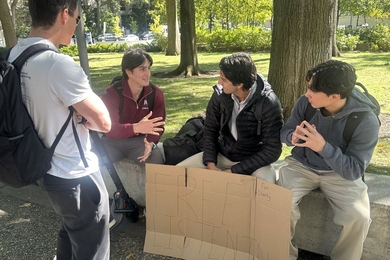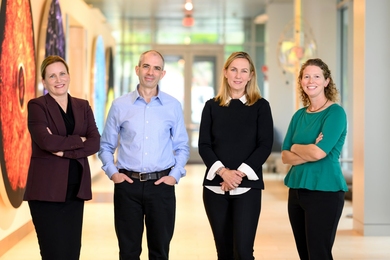The following letter was sent to MIT faculty members today by Institute Community and Equity Officer John Dozier and Associate Provost Tim Jamison.
Dear colleagues,
We are writing at this moment of moral urgency in our country and in our community. Wednesday, June 10, saw many of us – many of you – participating actively in numerous events connected to #ShutdownAcademia, #ShutdownSTEM, and #Strike4BlackLives, and we thank you.
We would also like to offer some initial reflections on how we hope to take concrete actions and catalyze lasting change. As faculty, you will play a critical role in this work.
Providing Support and Education
As last week’s poignant MIT Community Vigil laid bare, members of the MIT community – specifically our Black students and colleagues – are in excruciating pain following the murders of George Floyd, Breonna Taylor, Ahmaud Arbery, Tony McDade, and so many Black and Brown people killed by police and private citizens. The pain is all the more searing because it is rooted in systemic racism and injustice in this country that dates back centuries. And it’s compounded by the fact that, after every unjust and untimely death, we tell ourselves, “Never again.” But still the heartbreaking cycle persists, and such tragic, infuriating, and senseless events happen – again and again and again.
As teachers, mentors, advisors, and supervisors, our first instinct is concern for others – we worry for the safety and wellbeing of those in our community: our undergraduate and graduate students; our postdocs and research staff; our administrative, support, and service staff; and of course, each other, our faculty and instructional staff colleagues. We felt it was important for you to know that the Institute has reached out directly to students to let them know that they are not alone and that there are places to turn for help. Many deans and department heads have sent similar messages of care.
Moving Forward
On Tuesday, June 9, MIT’s Academic Council held its annual June retreat. Both of us are members of this group, and together we led a discussion about the development of MIT’s strategic action plan for diversity, equity, and inclusion. Such a plan was one of the key recommendations in this letter from student members of the Academic Council Working Group, which was established to implement the 2015 Black Students’ Union (BSU) and Black Graduate Student Association (BGSA) recommendations. We agree with the students that we have made some progress with these recommendations, but much more remains to be done. A coordinated, strategic, well-resourced, highly visible action plan for diversity, equity, and inclusion is what MIT urgently needs now.
Fortunately, in building this plan, we have the benefit of valuable insights and recommendations from previous community reports, MindHandHeart Department Support action plans, and the inspiring ongoing efforts of our campus partners.
MIT senior leaders have directed us to develop this plan in an inclusive and expedited manner. We aim to release a draft plan for community feedback no later than the end of the fall semester so that we can create a comprehensive vision – backed by clear objectives, assessment and accountability mechanisms, and resources – to achieve our collective ideals. We believe we will get there, and this week’s conversation with the Academic Council felt like a milestone moment for MIT.
We will be back in touch with the next steps for the strategic action plan later this month. In the meantime, we hope you will not hesitate to contact us if you have any questions or concerns about the strategic action plan or the resources we’ve provided here.
Sincerely,
John Dozier, Institute Community and Equity Officer
Tim Jamison, Associate Provost






